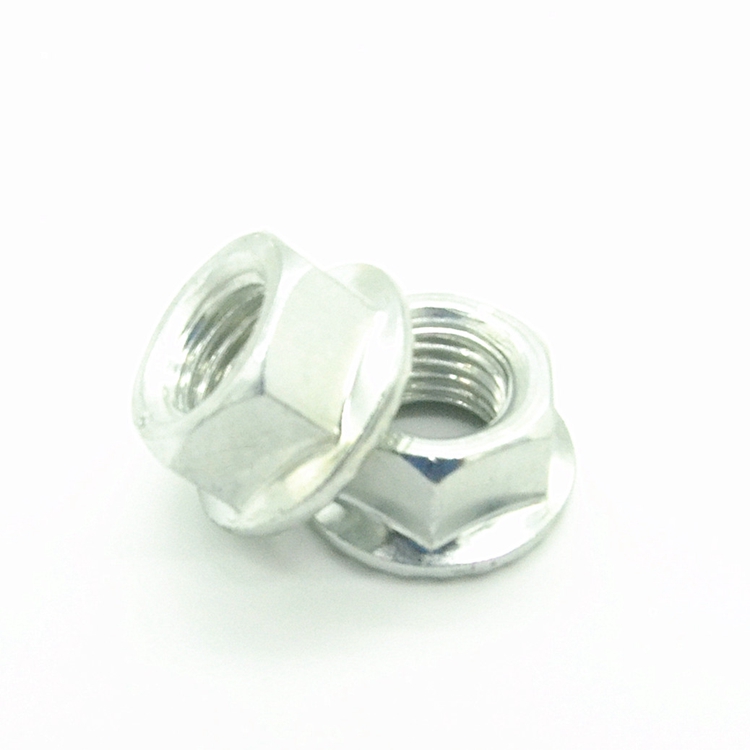Stud Bolt L7 Specifications and Applications in Industrial Settings
dets. . 11, 2024 09:18 Back to list
Stud Bolt L7 Specifications and Applications in Industrial Settings
Stud Bolt L7 An In-Depth Look at a Critical Fastening Component
Stud bolts are essential components within various industries, particularly in construction and heavy machinery, where high-strength fastening is crucial. One type that stands out in terms of performance and application is the L7 stud bolt. Known for its durability and reliability, the L7 stud bolt is designed to meet the stringent requirements of various engineering and industrial applications. In this article, we will explore the characteristics, applications, and advantages of L7 stud bolts.
What is an L7 Stud Bolt?
An L7 stud bolt is a type of high-strength fastener made from corrosion-resistant materials designed to withstand high pressure and extreme environments. The name “L7” typically refers to a specific grade defined by the American Institute of Steel Construction (AISC) and the American Society for Testing and Materials (ASTM). L7 stud bolts are most often created from alloy steel, which is treated to enhance its strength and ductility.
The standard configuration for an L7 stud bolt includes a threaded rod with two hexagonal nuts that secure it in place. The ends of the stud may also feature a plain finish or be coated with various anti-corrosion treatments, ensuring longevity in demanding environments.
Characteristics of L7 Stud Bolts
1. Material Strength L7 stud bolts are engineered to offer remarkable tensile strength, making them suitable for high-stress applications. They commonly exhibit yield strengths higher than conventional bolts, which is essential for applications involving heavy loads.
2. Corrosion Resistance Many L7 stud bolts are coated or constructed from materials that resist rust and other forms of corrosion, enhancing their longevity and performance in environments prone to moisture and chemicals.
3. Temperature Resistance In industries where temperature fluctuations are a concern, L7 stud bolts are designed to maintain their structural integrity even under extreme temperatures, making them suitable for applications like oil and gas processes.
4. Thread Design The threading on L7 stud bolts is precision-engineered to ensure a secure fit and optimal load distribution, which mitigates the risk of failure due to loosening over time.
Applications of L7 Stud Bolts
L7 stud bolts are widely used across various industries due to their impressive performance characteristics. Some common applications include
stud bolt l7

1. Oil and Gas In the oil and gas sector, L7 stud bolts are integral in constructing pipelines and securing drilling equipment, where high pressures and corrosive environments are prevalent.
2. Power Generation These fasteners are used extensively in power plants, especially in steam and gas turbine applications, where they can handle thermal expansion and high-stress loads.
3. Construction In the construction industry, L7 stud bolts are often used for structural steel connections, particularly in high-rise buildings and bridges, where safety and structural integrity are of utmost importance.
4. Marine Engineering Marine applications benefit from L7 stud bolts due to their corrosion-resistant properties, making them ideal for securing components in ships and offshore structures.
Advantages of Using L7 Stud Bolts
1. Enhanced Safety The strength of L7 stud bolts provides high assurance of safety in load-bearing applications. Their resistance to loosening under vibration further enhances reliability.
2. Longevity With excellent corrosion resistance and strength, L7 stud bolts outlast many standard fasteners, leading to lower maintenance and replacement costs over time.
3. Versatility L7 stud bolts can be used in various combinations with other fasteners, making them highly adaptable for different settings and requirements.
4. Cost-Effectiveness Although L7 stud bolts may come at a higher initial cost, their longevity and performance can lead to decreased overall expenses due to reduced maintenance and replacement frequencies.
Conclusion
L7 stud bolts are not just fasteners; they are integral components that play a critical role in the safety and functionality of various infrastructures and machinery. Their exceptional strength, corrosion resistance, and reliability make them the preferred choice for demanding applications across multiple industries. As technology continues to evolve, the demand for such high-performance fasteners is likely to increase, solidifying the role of L7 stud bolts as vital elements in engineering and industrial contexts. Understanding their characteristics and applications will ensure that engineers and contractors can make informed decisions when it comes to fastening solutions in high-stakes environments.
Latest news
-
Reliable Wire Bolts Suppliers | Quality Zinc Plated Fasteners
NewsAug.26,2025
-
Wire Bolts Suppliers: Durable & Reliable Fasteners for Every Project
NewsAug.25,2025
-
Premium Cabinet Bolts Supplier | Wholesale & Custom Solutions
NewsAug.24,2025
-
Reliable Axle Nuts Supplier | Quality & Precision Fasteners
NewsAug.23,2025
-
Durable Bolts for Lawn Mower Handle - Top Supplier & Manufacturer
NewsAug.22,2025
-
High-Quality Bolts for Lawn Mower Handle Supplier & Manufacturer
NewsAug.21,2025
